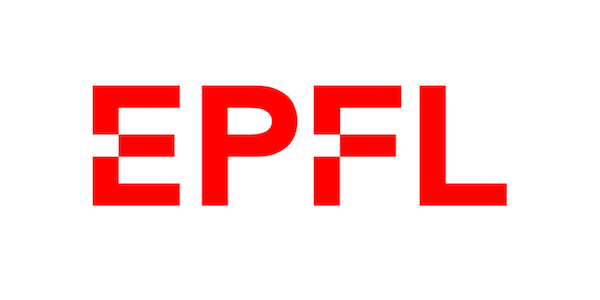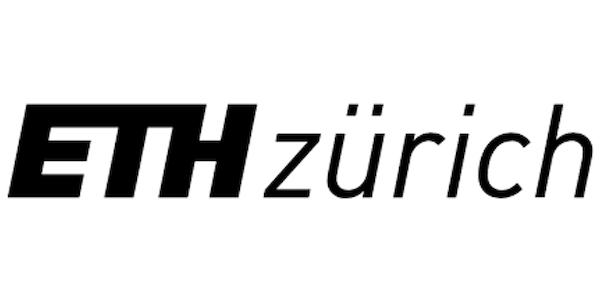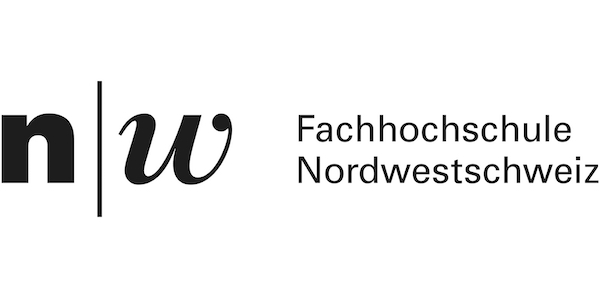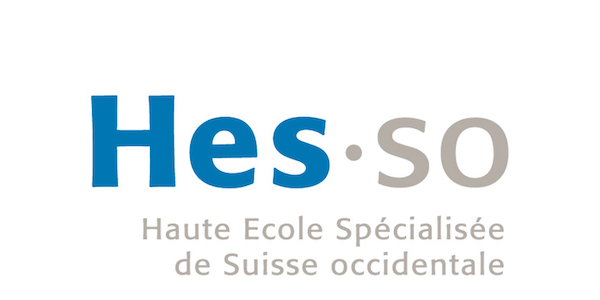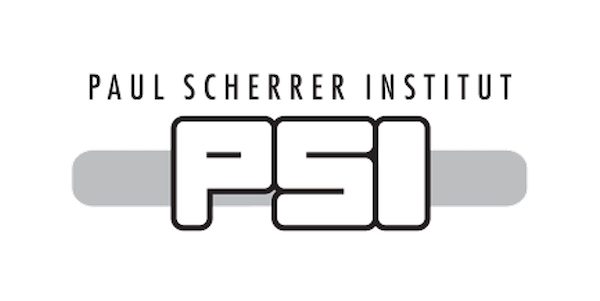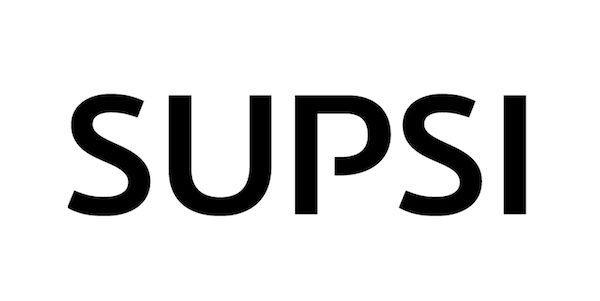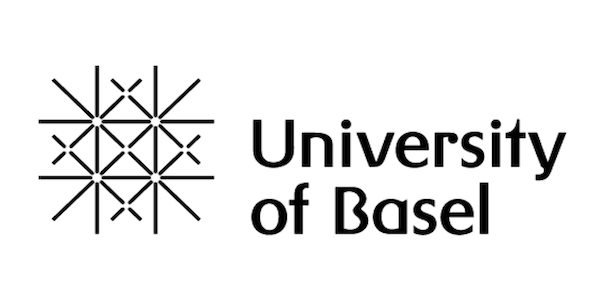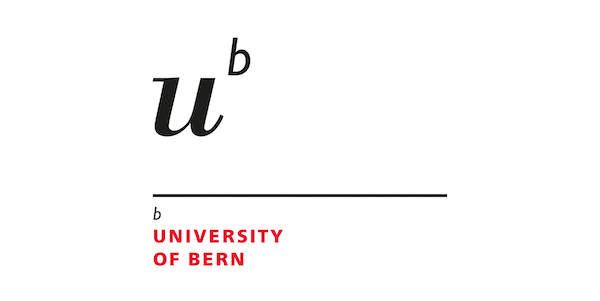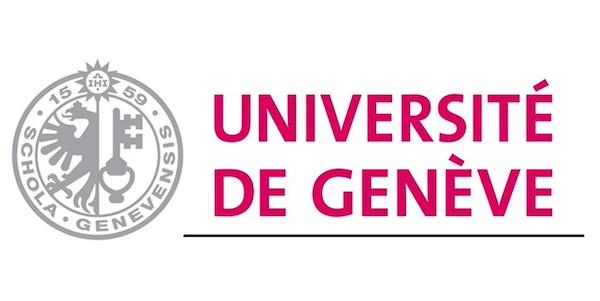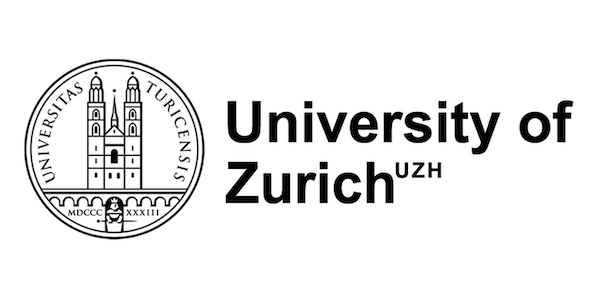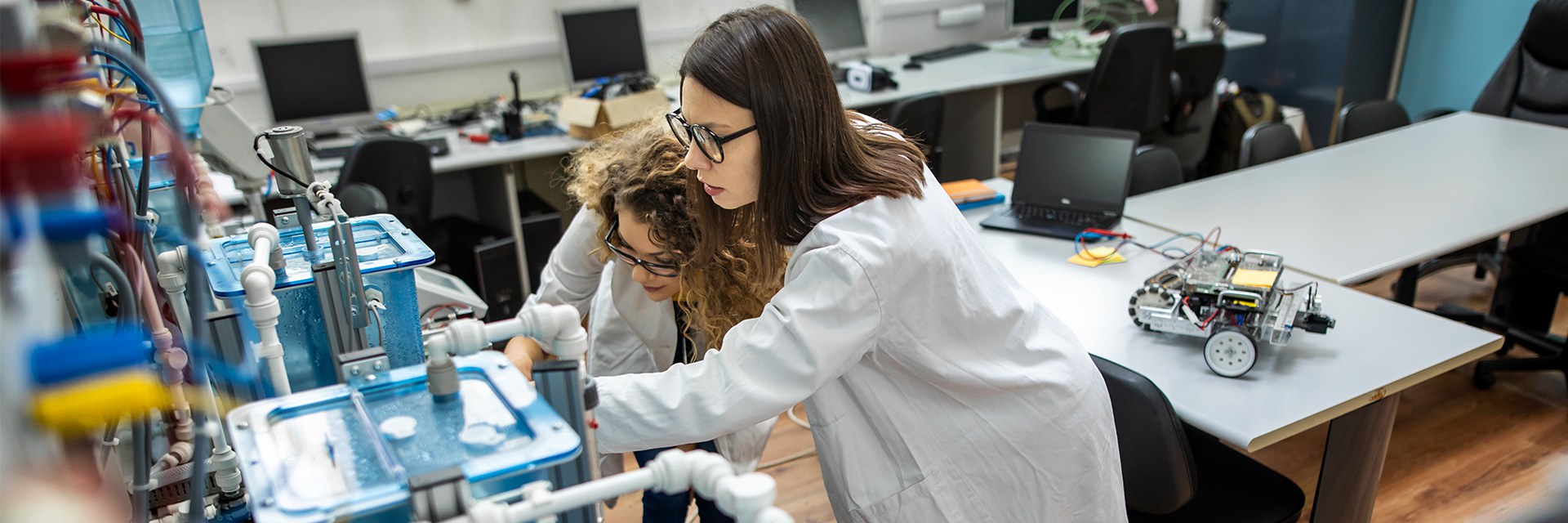
Success Stories
Female academic entrepreneurs and their companies in the spotlight
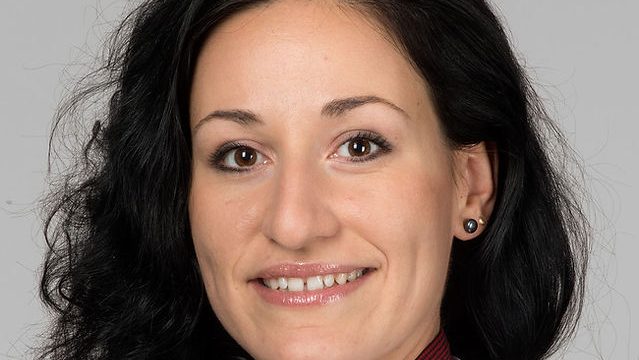
“Just try it! You can only win.”
A spin-off from the University of ZurichHaving grown up in a family of architects and engineers, Deana has engineering and entrepreneurship in her blood. Her interest in biology led her to study cell architecture and tissue engineering, and naturally, founding a company of her own was somewhat in the back of her mind. In October 2020, she took the leap and co-founded MUVON Therapeutics AG, a clinical stage spin-off from the University of Zurich. She currently serves as a CEO of MUVON Therapeutics, which has the mission to provide the patients the chance to regain control of their lives by using their own muscle precursor cells to functionally regenerate damaged muscle tissue. Her team has developed an autologous, and minimally invasive therapeutic personalized medicine approach using adult muscle cells. After successful completion of Phase I in 2021, the lead indication of the platform technology is about to start Phase II clinical study for treatment of female urinary incontinence.
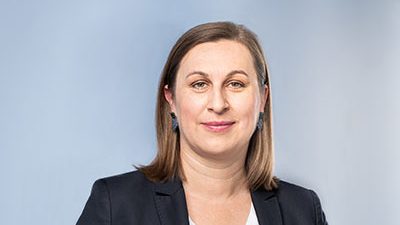
”We need more women leaders prepared to disrupt the status quo and bring in the diversity and change needed to deliver better and more accessible healthcare across the world.”
A spin-off from the Swiss Nanoscience Institute at the University of BaselInspired by the fact that something she was part of developing during her Ph.D. studies, could be directly applied to patients motivated Marija to leave University and found ARTIDIS. The thought that she could bring this technology to every hospital world-wide as a standard of care has been the greatest motivation and driving force for her.
ARTIDIS has developed the first nanomechanical biomarker for fast bedside cancer diagnosis and treatment optimization. Together with the ARTIDISNet platform, the ARTIDIS’ nanomechanical biomarker can maximize the response of solid tumors to chemo, immuno- and cell-therapy. The ARTIDIS technology visualizes each cancer signature and its environmental interaction over time, helping to find the best treatment ap- proach for every single patient.
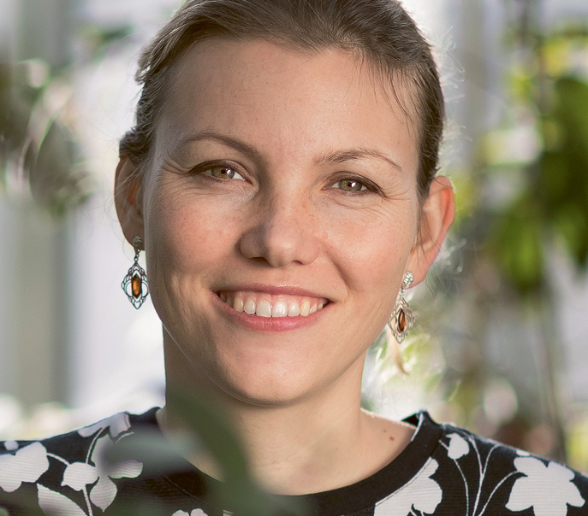
“The key thing is to work out what kind of role you want to play in the company. You can’t do everything all at once, but it’s good to try everything out.”
A partner of University of LausanneAs a female company founder you have to believe in what you’re doing. As a woman you may be treated differently to a man. That’s why it’s vitally important that you respect yourself. And gain the respect of others. If a woman has a great idea and believes in it, she should definitely start a company.
Read the full interview on:
innosuisse.ch/inno/en/home/success-stories/women-and-innovation/testimonials/olga-dubey-agrosustain.html
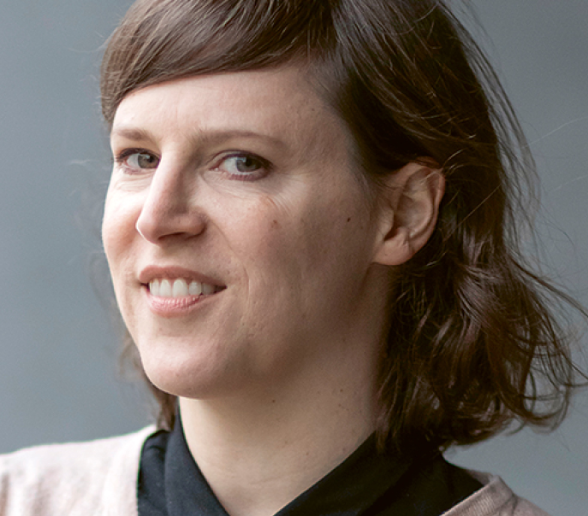
“You’re never alone as a business founder – it helps to find an environment with likeminded entrepreneurs who are in a similar situation to you. It’s equally important to draw on the experience of others.”
A spin-off by ETHZAs a female company founder you have to believe in what you’re It would be wonderful if there were more women in my industry, greater diversity in general and more varied career paths. That would create new role models and alleviate the fears of female career starters
Read the full interview on:
innosuisse.ch/inno/en/home/success-stories/women-and-innovation/testimonials/sandra-tobler.html
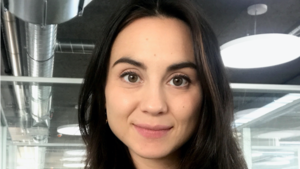
“Don’t be paralyzed by the fear of failing! I hope my example will inspire other scientists to do the same with their projects.”
A spin-off from ETH Zurich“Why don‘t you turn your research into a company?“ A wise question by a professor turned Stefanie, a brave and passionate scientist doing her postdoc after finishing her Ph.D. in molecular and translational biomedicine, into an entrepreneur. Four years ago, based on her research, she co-founded TOLREMO therapeutics AG, a company with a goal to develop resistance-preventing cancer therapies. TOLREMO‘s drug candidates reprogram cancer cells to prevent them from becoming resistant to certain cancer therapies and thereby prolong the lives of cancer patients.
TOLREMO currently operates with a team of 12 people, has raised over CHF 22 million and has its first drug candidate which will enter the clinic in 2022.
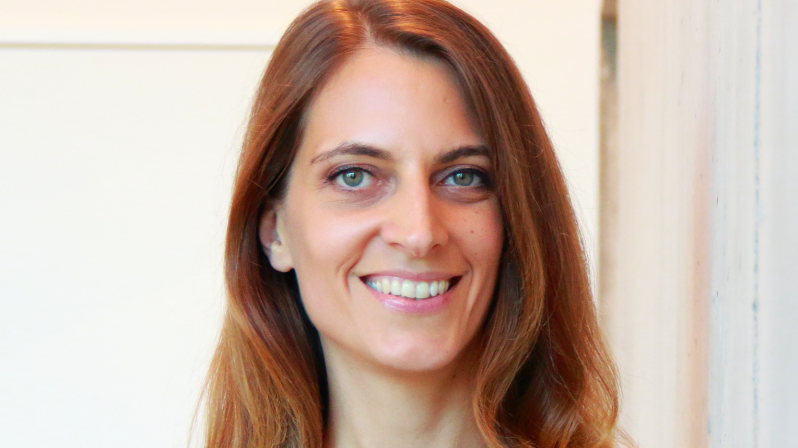
„The tech world needs these special skills that only we women have. We think more broadly, consider more influencing factors.”
A startup from the University of BaselVirginia has been fascinated since childhood with how people and cities function and how they have evolved over time into what we know today. Today‘s cities are often not very people-friendly, which led Virginia to found Dedomena, an urban data analytics platform with the vision to design cities on a human scale. Dedomena pro- vides broad-linked digital data to identify behavioral patterns and trends in public spaces at any given time so that urban planners, governments, and businesses can better plan, design, manage, and promote local activities.
Through her background in Business Management, Virginia became interested in digital techno- logies when she co-created an application for young bank customers at her former employer, a big Swiss bank.

„Innovation enjoys a higher priority in Switzerland than in other countries. We’re grateful to be able to do research and develop our ideas here.”
An EPFL startupRead the full interview on:
discover-innosuisse.ch/en/projects/sustainable-energy
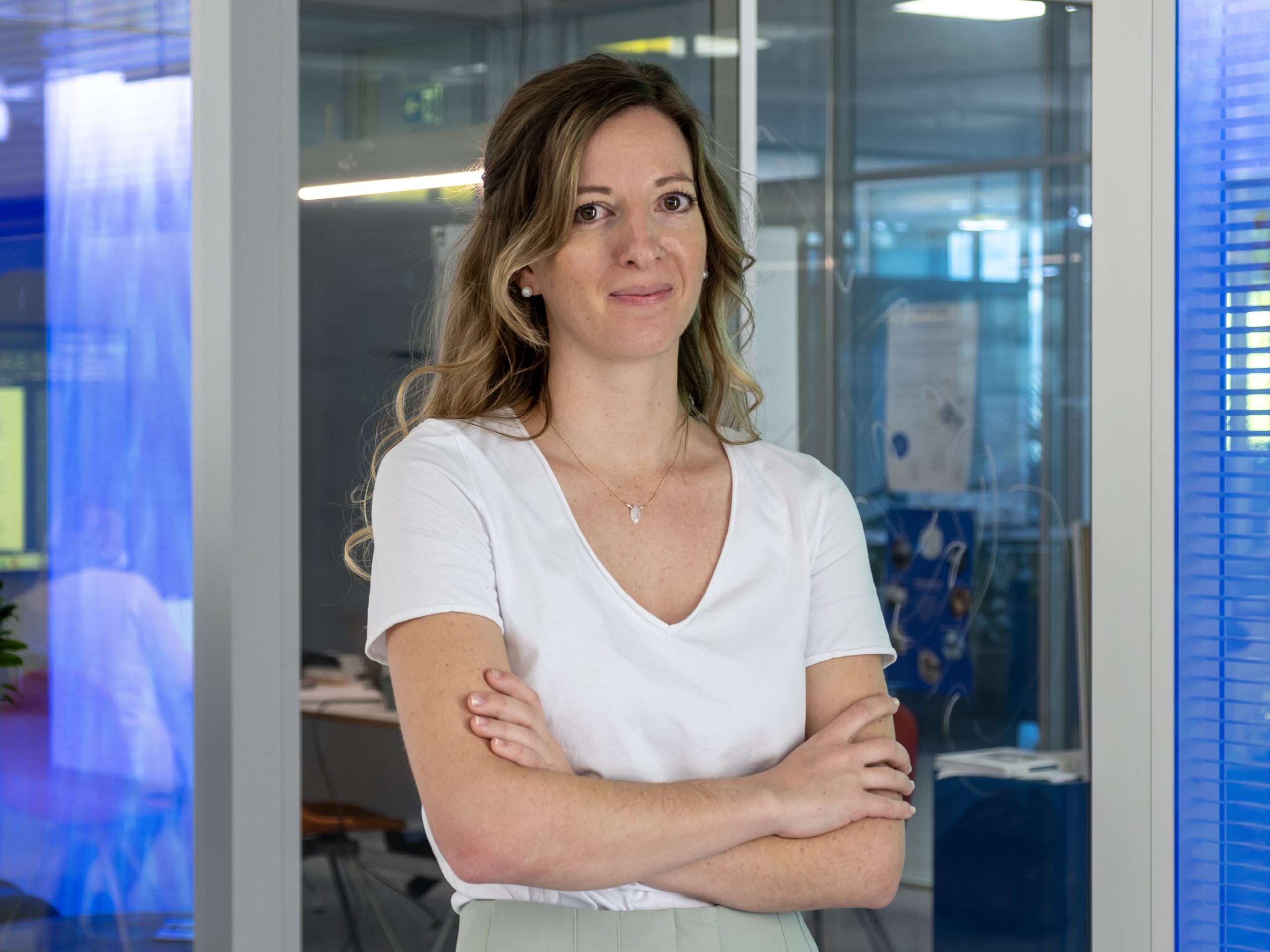
“Trust yourself, don’t underestimate yourself or think you don’t have the skills.”
A HES-SO start-upAude Ambrosini launched her start-up Klode during her Masters, the fruit of a collaborative effort with two other students. Today, the three partners manage their business from product development to sales. Their flagship product, an innovative compost bin with a vacuum system, makes it possible to sort organic waste without odours or insects. Cultivating self-confidence, setting goals that evolve over time and, above all, being able to set limits have been essential elements in her journey to maintain a work-life balance.
Read the full interview in English or French
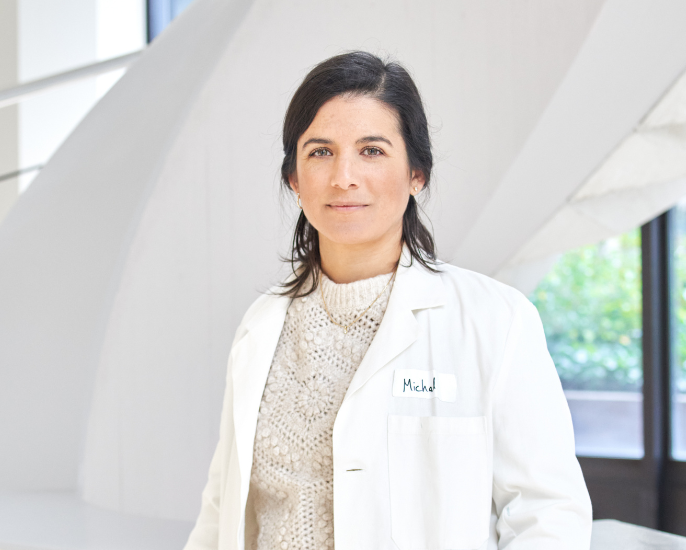
A spin-off from the University of Zurich
The spin-off from UZH develops next-generation medications to treat lead poisoning at various levels, many of which cannot be currently treated. Food, tap water or even air particles can be contaminated with lead, which poses serious health risks. Even small amounts of the heavy metal can lead to kidney damage, anemia, high blood pressure, cardiovascular failure and cognitive and neurological impairments. There are currently only two drugs available to treat severe lead poisoning, and over 90 percent of diagnosed cases are left untreated. Michal Shoshan and her team at the Department of Chemistry have developed novel short peptides that do not have the disadvantages of conventional therapies.
The spin-off from UZH develops next-generation medications to treat lead poisoning at various levels, many of which cannot be currently treated. Food, tap water or even air particles can be contaminated with lead, which poses serious health risks. Even small amounts of the heavy metal can lead to kidney damage, anemia, high blood pressure, cardiovascular failure and cognitive and neurological impairments. There are currently only two drugs available to treat severe lead poisoning, and over 90 percent of diagnosed cases are left untreated. Michal Shoshan and her team at the Department of Chemistry have developed novel short peptides that do not have the disadvantages of conventional therapies.
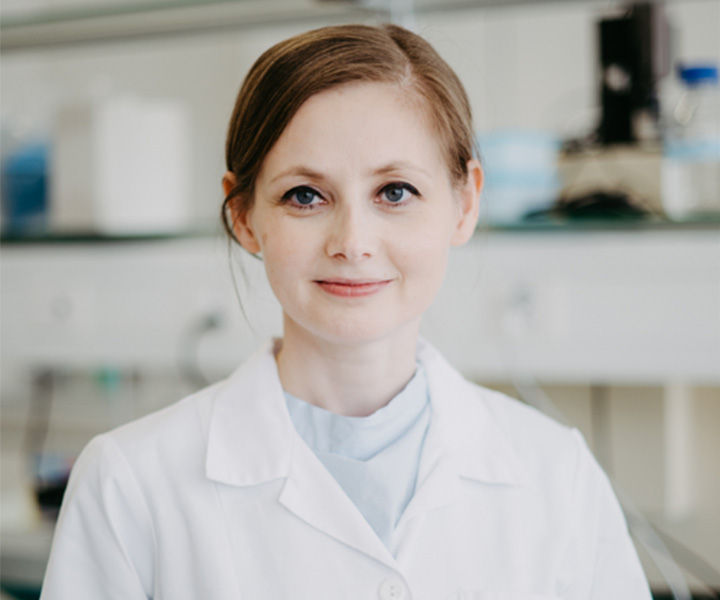
A spin-off from the University of Zurich
The spin-off from UZH FimmCyte is developing a new treatment for endometriosis, a disease in which endometrium-like cells grow outside the uterus. Endometriosis often causes severe and chronic pain, affecting an estimated 10 percent of women of childbearing age worldwide. Instead of the usual hormone treatments or operations, Valentina Vongrad and her team at FimmCyte is developing an antibody therapy.
The spin-off from UZH FimmCyte is developing a new treatment for endometriosis, a disease in which endometrium-like cells grow outside the uterus. Endometriosis often causes severe and chronic pain, affecting an estimated 10 percent of women of childbearing age worldwide. Instead of the usual hormone treatments or operations, Valentina Vongrad and her team at FimmCyte is developing an antibody therapy.
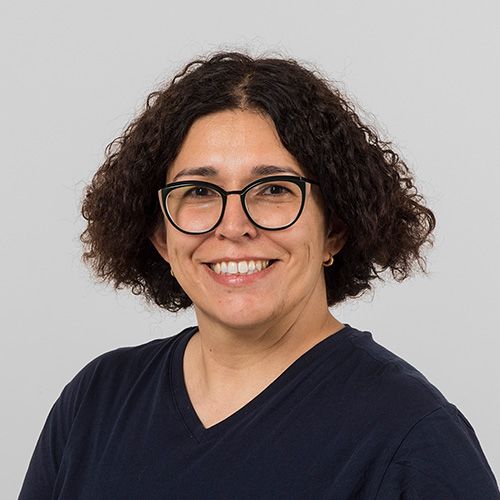
A UZH MedTech company
Irina Benzola and her team at ONtrack Biomedical AG develop in-vitro diagnostic tests for the non-invasive early detection and monitoring of cancer.
Irina Benzola and her team at ONtrack Biomedical AG develop in-vitro diagnostic tests for the non-invasive early detection and monitoring of cancer.

An UZH Startup
Anne Scherer and Cindy Cadrian at UZH spin-off Delta Labs specialize in AI-driven business solutions. With their first product “Delta One”, generative AI can be used to communicate in the brand’s tonality.
Anne Scherer and Cindy Cadrian at UZH spin-off Delta Labs specialize in AI-driven business solutions. With their first product “Delta One”, generative AI can be used to communicate in the brand’s tonality.

A spin-off from the University of Zurich
Jana Fischer and Andrea Jacobs at Navignostics, a spin-off company from the University of Zurich leverage spatial single-cell proteomics to perform advanced analyses of tumor samples. The mission of Navignostics is to provide innovative solutions to identify the best possible treatment for each cancer patient and reduce suffering throughout their journey.
Jana Fischer and Andrea Jacobs at Navignostics, a spin-off company from the University of Zurich leverage spatial single-cell proteomics to perform advanced analyses of tumor samples. The mission of Navignostics is to provide innovative solutions to identify the best possible treatment for each cancer patient and reduce suffering throughout their journey.
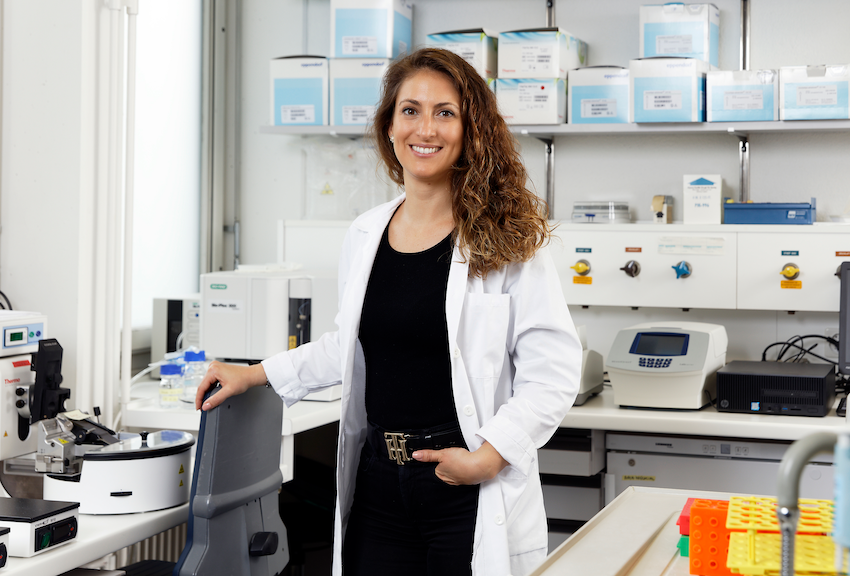
A spin-off from the University of Zurich
UZH molecular biologist and entrepreneur Ana Montalban-Arques has set herself an ambitious goal: she wants to beat cancer with intestinal bacteria – preferably without side effects. Ana and her team of the UZH biotech start-up Recolony is developing a cancer therapy that is already causing a sensation internationally.
UZH molecular biologist and entrepreneur Ana Montalban-Arques has set herself an ambitious goal: she wants to beat cancer with intestinal bacteria – preferably without side effects. Ana and her team of the UZH biotech start-up Recolony is developing a cancer therapy that is already causing a sensation internationally.
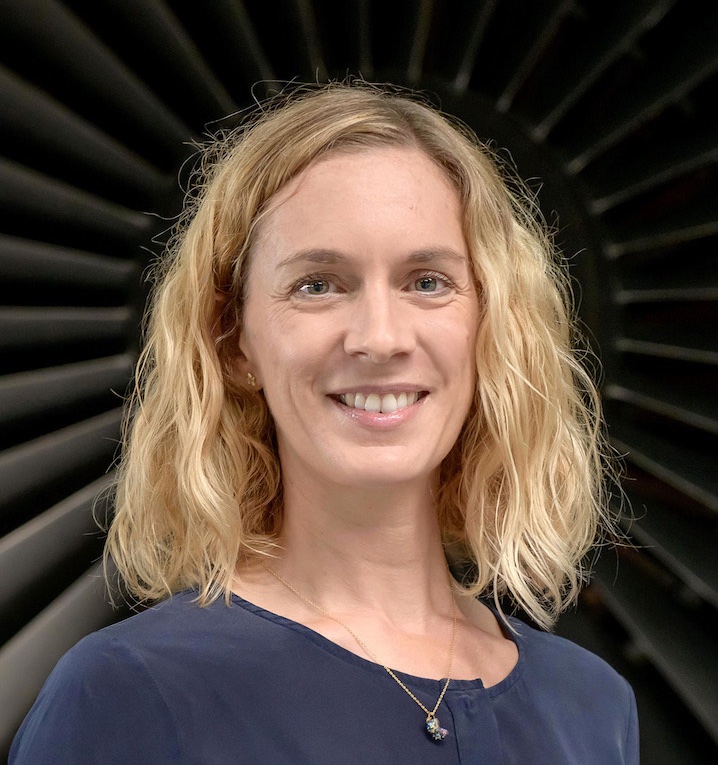
A spin-off from the University of Zurich
Prometheus Life Technologies have been founded at UZH Space Hub that work with innovative technologies in space.Liliana Layer and her team work to enable the large-scale production of high-quality human tissue in microgravity to improve drug development and testing, as well as regenerative medicine.
Prometheus Life Technologies have been founded at UZH Space Hub that work with innovative technologies in space.Liliana Layer and her team work to enable the large-scale production of high-quality human tissue in microgravity to improve drug development and testing, as well as regenerative medicine.
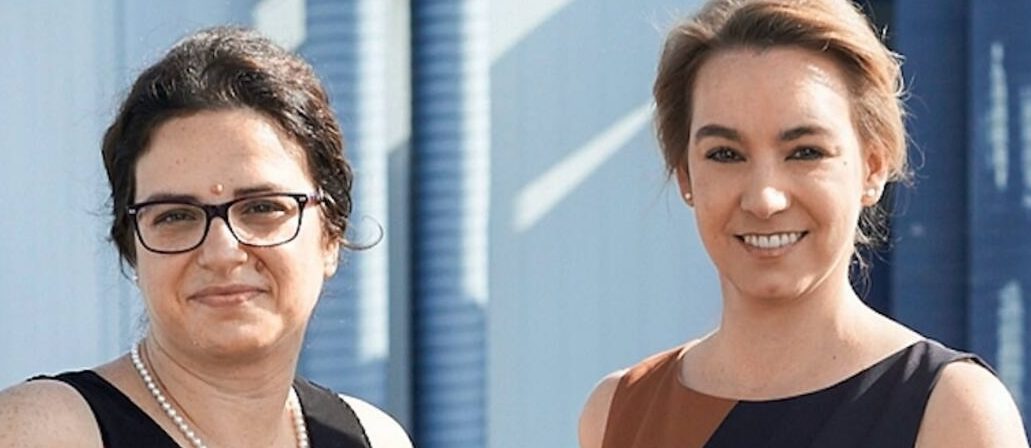
A spin-off from the University of Zurich
Daniela Marino and Fabienne Hartmann, Cutiss AG a University of Zurich Spin-Off create personalized skin transplants on a large-scale basis using biotechnology.
Daniela Marino and Fabienne Hartmann, Cutiss AG a University of Zurich Spin-Off create personalized skin transplants on a large-scale basis using biotechnology.
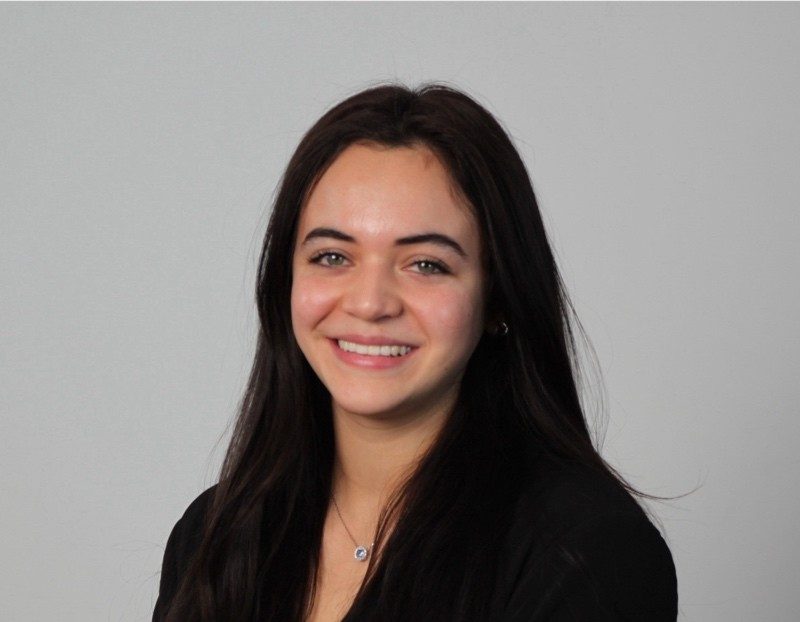
“Entrepreneurship is full of ups and downs, so it’s perfectly normal to lose motivation. The important thing is to know how to pull yourself together and keep moving forward.”
A FemSpin ProjectBesides studying business information technology, Melany Barron runs her own company, WeJob. She took over the project in 2022 and now manages a team of four employees that is gradually expanding. WeJob is a platform that aims to connect IT professionals looking for jobs with companies that are recruiting. The team is currently working on integrating artificial intelligence into the platform to make the recruitment process easier for candidates and human resources.
Read the full interview in English or French
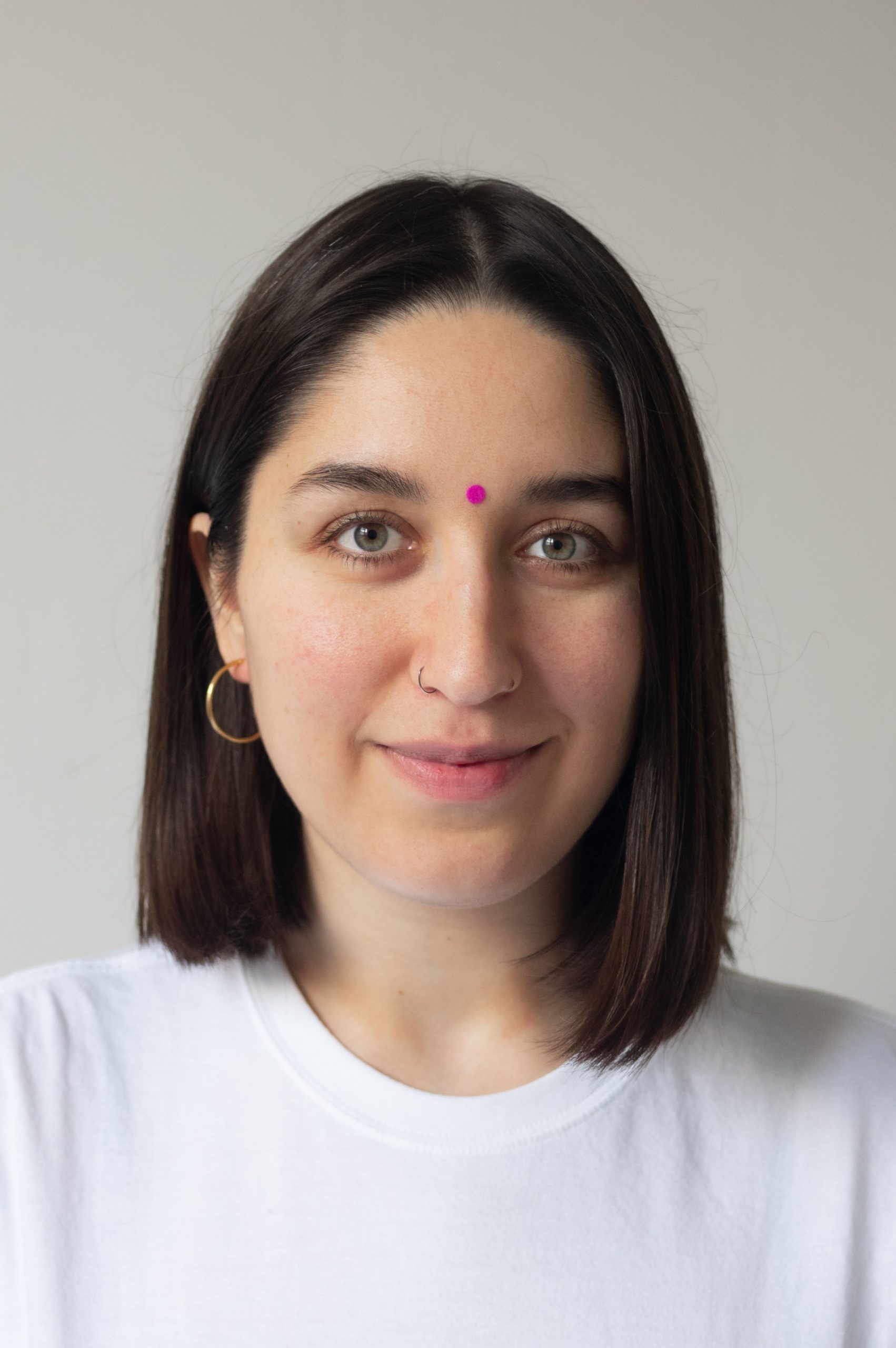
“Running an entrepreneurial project isn’t simple; you really need to trust yourself and avoid working solo to keep going in the long term. Developing a project with others, especially other women and gender minorities, helped me to feel more legitimate.”
A HEAD ProjectAnne-Soorya created the Pvssy Talk platform to make up for the lack of information on the subject after observing how difficult it is for women and people with vulvas to have their sexual pain diagnosed. Available online, on Instagram or via its website, Pvssy Talk popularizes medical knowledge and gives patients a better understanding of their bodies, their sexuality and the pain related to them. Anne-Soorya started out on her own with the project, but soon benefited from the support of Pulse, the HES-SO Genève incubator. Thanks to this supportive environment, and surrounded by other women entrepreneurs, she has built up a non-mixed team and a valuable network to take this project forward.
Read the full interview in English or French
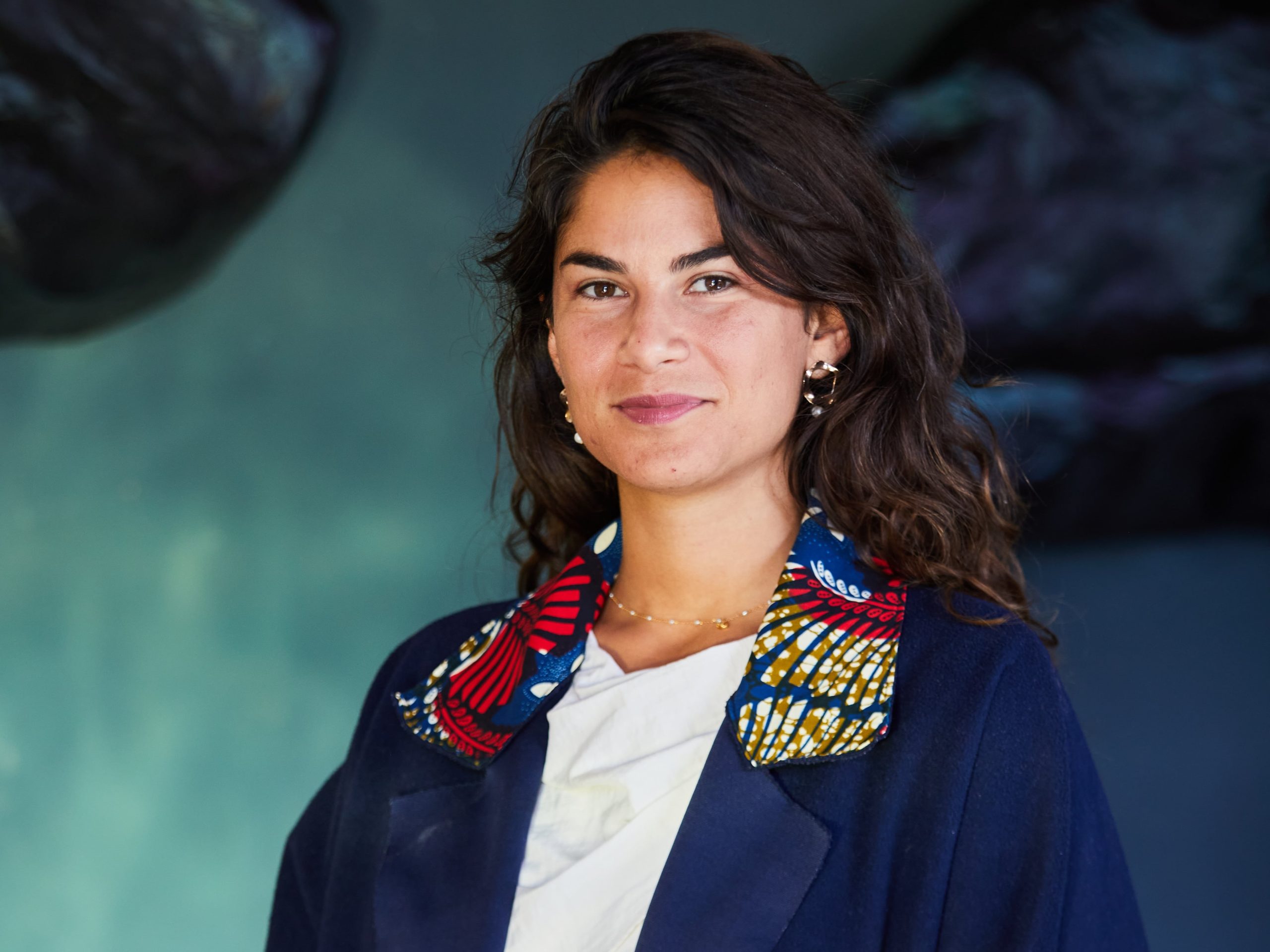
“There’s no such thing as perfection. As long as we do our best, we have to accept that there are factors we can’t control and be indulgent with ourselves to keep the desire to move forward.”
A FemSpin ProjectFollowing an extensive and varied academic and professional history, Karen Pisoni founded the company Pisoni-lab with the aim of creating circular scenographies. Her innovative approach aims to minimise the purchase of new materials and reduce waste by reusing existing works and second-hand objects. Pisoni-lab designs these scenographies for various events. Its achievements include a collaboration with the Swiss Institute during the 2024 Design Days in Milan, and with Caritas for the Fureur de lire festival.
Read the full interview in English or French
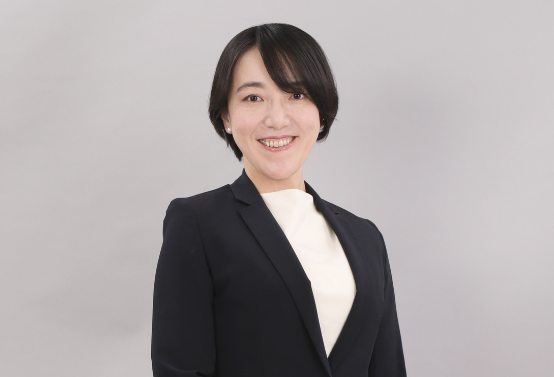
A spin-off from the University of Zurich
Misako Yamazaki and her team at PRIMA genetics, a spin-off from UZH, develops a molecular biology solution that can be used for clinical diagnosis. The new analytical method will be applicable to all types of single nucleotide polymorphism (SNP) analysis, including the rapidly growing clinical field of pharmacogenetics. The detection of SNPs is crucial for the treatment of human diseases and other clinically important problems, as SNPs in the genome can influence the efficacy of drugs and lead to the development of cancer.
Currently, several methods for the detection of SNPs are in development but there is no golden standard yet. The flexibility of PRIMA genetics method makes it easy for a hospital to broaden the usage to the analysis of many genes once it is implemented for an initial gene. This approach could aid healthcare providers in diagnosing previously overlooked diseases and making treatment decisions tailored more closely to individual needs.
The team plans to collaborate with medical device manufacturers to enhance the automation and higher throughput of sample handling. The goal is to offer the technology to hospitals.
Misako Yamazaki and her team at PRIMA genetics, a spin-off from UZH, develops a molecular biology solution that can be used for clinical diagnosis. The new analytical method will be applicable to all types of single nucleotide polymorphism (SNP) analysis, including the rapidly growing clinical field of pharmacogenetics. The detection of SNPs is crucial for the treatment of human diseases and other clinically important problems, as SNPs in the genome can influence the efficacy of drugs and lead to the development of cancer.
Currently, several methods for the detection of SNPs are in development but there is no golden standard yet. The flexibility of PRIMA genetics method makes it easy for a hospital to broaden the usage to the analysis of many genes once it is implemented for an initial gene. This approach could aid healthcare providers in diagnosing previously overlooked diseases and making treatment decisions tailored more closely to individual needs.
The team plans to collaborate with medical device manufacturers to enhance the automation and higher throughput of sample handling. The goal is to offer the technology to hospitals.
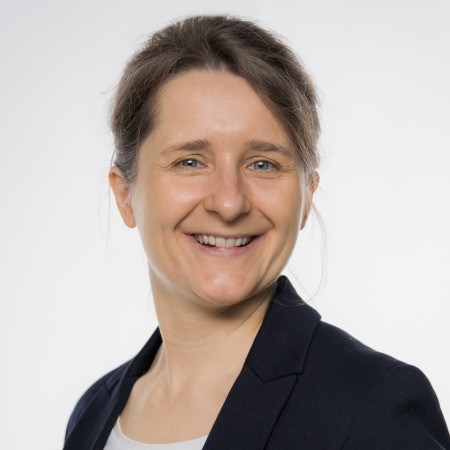
A spin-off from the University of Zurich
UZH alumni Dr. Sophia Borowka and her co-founders Jana Maes and Dr. Jinesh Kallunkathariyil founded Aison Technologies back in 2018.
The startup develops medical devices that augment diagnostic ultrasound, a non-invasive, safe and readily available technology with high unrealized potential. By pushing the boundaries of the state of the art in ultrasound diagnostics, Aison Technologies brings innovation into this field, expanding doctors’ capabilities to apply ultrasound and increasing the diagnostic yield of such devices.
UZH alumni Dr. Sophia Borowka and her co-founders Jana Maes and Dr. Jinesh Kallunkathariyil founded Aison Technologies back in 2018.
The startup develops medical devices that augment diagnostic ultrasound, a non-invasive, safe and readily available technology with high unrealized potential. By pushing the boundaries of the state of the art in ultrasound diagnostics, Aison Technologies brings innovation into this field, expanding doctors’ capabilities to apply ultrasound and increasing the diagnostic yield of such devices.
Original sources:
- EPFL & EPFL Innovation Park (YouTube channels)
youtube.com/c/epflnews
youtube.com/channel/UCsWNs1h_SqQobVe77bwbI_w
- FEMtrepreneuers – Women in Healthcare Innovation 2021
pupella.org/post/women-in-healthcare-innovation
- Innosuisse – Testimonials and innovations
innosuisse.ch/inno/en/home/success-stories/women-and-innovation/testimonials.html
- UZH Innovation Hub
https://innovation.uzh.ch/en/stories.html
